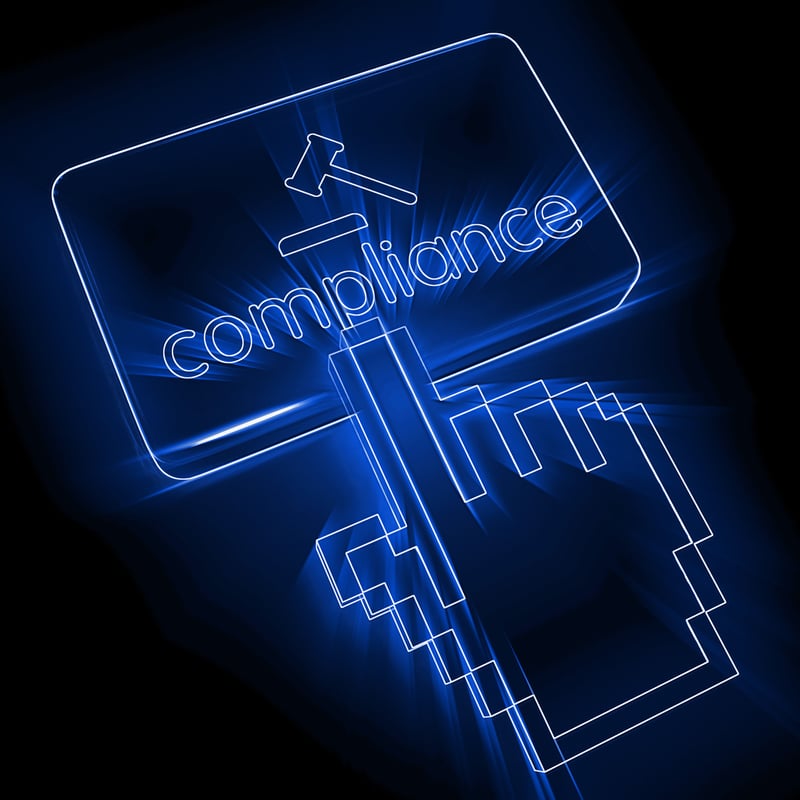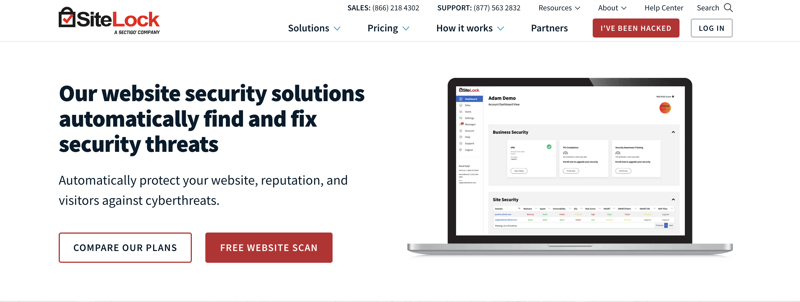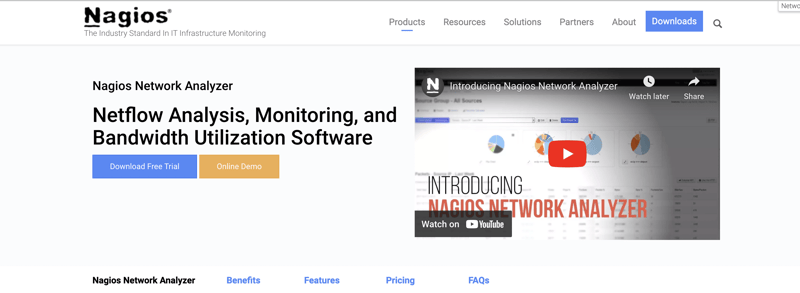- Articles
- A Guide to Cyber Security Management [Complia...
Table of Contents
Cyber Security can get complicated.
There are so many different terms and definitions - you've got antivirus software and firewalls and sandboxing, and on and on it goes…
It's enough to cause a migraine and make you want to ignore the entire concept.
But in a world where 64% of companies have experienced web-based attacks, that's not exactly a viable option.
That's why we're here.
We're going to explain everything you need to know about cyber security management, why it's essential for the safety of your business, and the types of cyber security solutions you can implement.
And we give you our word - we'll explain every confusing term along the way.
What Is Cyber Security Management

Cyber security management is an area of information technology. Companies use it to protect their sensitive information and ensure the continuation of their business processes in case of an attack. This means protecting an organization's systems, applications, and networks from cyber threats like malware, phishing, and others by establishing security protocols and implementing different security tools.
Cyber security management protects every inch of an organization's attack surface. That means safeguarding any point of attack that cybercriminals might use to infiltrate an organization.
These points of attack fall into two categories:
- Digital attack surface: Encompasses all the software and hardware connected to the organization's network. That includes applications, servers, websites, etc.
- Physical attack surface: Encompasses all end-point devices attackers can access. That means computers, phones, hard drives, USBs, etc.
The goal of cyber security management is to consider the potential avenues of attack and create a comprehensive security plan that serves as the foundation of an organization's cyber security.
Cyber security management also conducts risk assessments, prioritizes assets, and implements data classification. Once a company has established these processes, cyber security management focuses on risk management, threat detection, and attack response.
Importance of Cyber Security Compliance

Cyber security compliance is a standard of cyber security laid out by rules and regulations. It is the organizational risk management method created by regulatory bodies to determine the organization's security measures and ensure data confidentiality. Regulatory bodies implemented them to establish a baseline of cyber security in every organization, regardless of its individual prioritization of cyber defense.
Regulations began to take effect as the threat of cyber security attacks rose, and organizations became more exposed to attacks due to the digitization of business processes.
These regulations vary slightly based on countries, industries, sectors, and so on.
By complying with these regulations, companies minimize the risk of a cyber attack and contain the damage caused by an attack if it occurs.
Compliance also ensures that companies don't suffer heavy fines for breaching regulations. These fines are not negligible in size - large companies are losing 1.5% of their profits to fraud and non-compliance.
Here are the major cyber security regulations:
- HIPAA: This is the Health Insurance Portability and Accountability Act, a U.S. Federal statute. It deals with sensitive health-related information. Organizations must comply with the standards laid out in this act when they transmit health information electronically.
- FISMA: This is the Federal Information Security Management Act in the United States. It protects national security and economic interest information, operations, and assets from unauthorized access.
- PCI-DSS: The Payment Card Industry Data Security Standard is an information security standard for implementing credit card data protection.
- GDPR: The General Data Protection Regulation is a data protection and privacy law in the European Union. It controls how companies can collect and handle the personal data of EU citizens.
3 Reasons Why Cyber Security for Business is Essential

There are three main reasons why every business needs to focus on cyber security.
Here's a quick overview of them:
|
Reason |
Features |
|
Reduce the risk of cyber attack |
|
|
Save on costs |
|
|
Protect the company's reputation |
|
And here's a more detail look:
1. Reduce the risk of a cyber attack
Between networks, systems, applications, and the Internet of Things (IoT), the attack surface of companies has expanded dramatically over the years.
It should come as no surprise, then, that cybercrimes will cause $10.5 trillion in damages in 2025, way up from $3 trillion in 2015.
But that doesn't mean that all companies take the threat seriously, especially small-to-medium-sized companies.
Only 5% of small business owners report cyber security as the biggest threat to their business.
And that's a problem for two reasons:
- 43% of cyber attacks target small companies
- 60% of small companies go out of business within 6 months of a cyber attack.
But the problem goes further than that: Human error causes 95% of breaches. This is important to highlight, as many small business owners believe that cyber threats are external threats.
All of these reasons prove why cyber security management is essential for businesses.
By implementing firewalls and antivirus programs, prioritizing assets, and creating response protocols, cyber security management gives companies the necessary tools to prevent attacks and respond to them.
Furthermore, by training employees and establishing strict cyber security policies, companies minimize the risks they face.
2. Save on costs

The average cost of a data breach in 2022 is $4.35 million.
We know what you're thinking: I run a small business. You don't expect me to believe it'll cost me that much, do you?
No, we don't.
But as we mentioned earlier, 60% of small companies go out of business after a cyber attack. That means that whatever the number turns out to be, it'll be too high for the majority of small companies.
Companies that view cyber security as nothing more than an expense should remember that. They should also keep in mind that the cost of a data breach goes up every year - it has increased by 12.7% since 2020.
Those aren't the only costs cyber security management can save a company. There is also the question of fines that companies have to pay when they breach regulations.
For companies in the healthcare sector, each violation can cost them up to $50,000. There is a limit on how much money companies can pay each year, which essentially means you'll have to pay the fine for multiple years.
The EU's GDPR, on the other hand, can set fines of up to €10 million or 2% of the company's global turnover - whichever is higher.
3. Protect the company's reputation
Nothing can sink a company quicker than a massive data breach.
Customers entrust companies with their personal data with the understanding that the information will be kept private and secure.
To hear that a company's negligence has exposed your information to the public breaks the trust between the company and the customers and warns all potential customers to stay away.
A Forbes Insight report indicates that 46% of companies suffered reputational damage and loss of brand value due to a breach.
After TalkTalk, a UK telecommunications firm, revealed that the personal information of 150,000 users had been compromised, the company lost over 100,000 customers, and the company's valuation went down by a third.
Types of Cyber Security Solutions

You generally have the choice between:
- Cyber security tools, and
- Cyber security consultants
Let's explore.
Cyber security tools
Cyber security tools are the different apps and software programs that protect an organization's attack surface.
If cyber security management is the army general dictating the strategy of the battle, then cyber security tools are the soldiers manning the gates.
Cyber security tools can be used to monitor an organization's systems, networks, and applications to detect vulnerabilities, threats, and attacks.
There are many different cyber security tools, including:
- Network security monitoring tools
- Encryption tools
- Packet sniffers
- Antivirus software
- Firewall
- Penetration testing
Every one of these tools can help protect an organization from potential threats. But, like with every other tool, they require someone who knows how to use them.
And that's where we come to:
Cyber security consultants
Cyber security consultants are outside professionals hired to come into a company and analyze its security status. They are experts in their field, people who stay on top of all technological developments and are familiar with the latest threats posed by cyber criminals.
Cyber security consultants identify problems, evaluate security risks, and implement solutions to help companies better protect their networks and systems. That includes which cyber security tools will best serve the company's needs and minimize its attack surface.
Cyber security consultants generally have three tasks:
- Risk prevention
- Attack detection
- Attack response
To accomplish these goals, cyber security consultants perform vulnerability tests, run attack response simulations, and then work with IT departments to develop viable solutions.
And on top of their other duties, cyber security consultants also deliver technical reports to the stakeholders. The cooperation of the C-suite is crucial to the success of any cyber security process, which is why cyber security consultants often serve as the bridge between the stakeholders and the IT departments, ensuring both are on the same page.
4 Cyber Security Tools
Looking for concrete examples of cyber security management tools?
Look no further as we'll introduce you to four market-leading solutions:
1. Beacon
![]()
Amaxra Beacon is an advanced turnkey solution designed for small-to-medium-sized enterprises.
A turnkey cyber security tool refers to a type of security product that can be transferred between clients and set up "out of the box." That means it doesn't require any customization on the part of the company that implements it into its security scheme.
Amaxra is a Gold-level Microsoft partner that, through Beacon, protects not only the identity of the company's users but also its applications, networks, data, and communication channels.
Amaxra offers the Beacon option in two packages:
- Amaxra Beacon Lite
- Amaxra Beacon Premium
Users can add the Amaxra Beacon Lite to their Microsoft 365 for no more than $1.50 per user per month. This package offers baseline identity protection along with passwordless sign-in and insight into user activities.
Amaxra Beacon Premium costs a bit more than Lite and builds on its features. These include zero-trust security, data leak protection, and automated endpoint protection.
2. SiteLock

SiteLock is one of the cloud-based website cyber security monitoring tools. The software tool scans a company's websites for malware and vulnerabilities.
Its features include:
- Daily website scans for threats
- Real-time notifications
- Automated malware removal
- Web application firewall to block and prevent harmful traffic
- Content delivery network to boost site speed
The company offers the tool in three packages:
|
Package |
Price |
|
Basic |
$14.99/month |
|
Pro |
$24.99/month |
|
Business |
$34.99/month |
3. SolarWinds

SolarWinds offers packet sniffing software.
Packet sniffing is the process of gathering, collecting, and analyzing all the traffic that passes through a network. The point is to scan the data for any malicious activity or issues that may hamper network performance.
SolarWinds allows users to identify traffic by application, category, and risk level to filter problematic traffic.
To get a price, users can request a quote here.
4. Nagios

Nagios offers a network security monitoring software tool. It provides insight into the network's traffic sources and potential cyber security threats
To provide an immediate understanding of the network's health, Nagios' intuitive dashboard offers direct insight into server system metrics, critical netflow, and abnormal network behavior.
The company offers this option for $1,995 per license.
Where Can You Find Cyber Security Support?
Companies that are well aware of the threats they face in the digital world are doing everything in their power to secure the right tools and information. They want to protect their systems, their networks, their employees, and also their customers.
That's a good thing, but there's no denying that it can lead to mistakes.
If you are unsure of the benefits each cyber security tool offers, then there's a good chance you might buy two tools that have some overlap. Even worse, maybe one department in your company uses one tool, and a different department uses another one.
So who do you turn to if you want to make sense of this mess? How can you save money and improve your security at the same time?
Microsoft Licensing Optimization is one option that might do the trick. This option can help you clean up your tech stack, give you a better understanding of your enterprise security, and lower the costs involved in your cyber protection at the same time.
By buying licenses that fit your enterprise needs perfectly, you can also improve the quality of your cyber security setup and lower the risk of a cyber security attack.


Need Help with Microsoft Licensing?
Leave your Microsoft licensing, security, and software solutions to us so you can concentrate on moving your business forward.Drop Us a Line
Cyber Security Management FAQs

"What are the major types of cyber security?"
There are four major types of cyber security:
- Network security: This type protects enterprise data from unauthorized access through the company network. Network security includes software and hardware technologies to defend the network, including firewalls, antivirus software, etc.
- Information security: This type represents the protection of all enterprise information, whether physical or digital. That's why this type includes everything from on-location perimeter security and surveillance to cryptography.
- Infrastructure security: This type focuses on the infrastructure organization needs to operate and conduct business. It protects data centers, servers, cooling systems, etc.
- End-user behavior: This type focuses on enterprise employees. Through education and the establishment of strict security protocols, it minimizes the risk that a human error might create a window of opportunity for attackers.
"Why is cybersecurity important?
Cyber security is important because it protects every digital aspect of an organization from attack. Whether it's safeguarding intellectual property, ensuring the company's networks remain active, or protecting consumers' private data, cyber security is the best method to fulfill all those roles. You can no longer operate without it protecting your business from external and internal threats.
"Who needs cybersecurity?"
Every company needs cyber security to protect its assets and operation. But some industries need cyber security more than others:
- Healthcare: This industry increasingly relies on digital records and even remote patient monitoring. For that reason, a lot of private data has become available to cyber criminals. The problem is so severe that 90% of healthcare organizations have been targeted with email-borne attacks.
- Small businesses: As already mentioned, 43% of cyber attacks target small businesses. This is mainly because of their size - they can't invest the same resources into cyber security as larger organizations.
- Financial institutions: Financial institutions are juicy targets for cyber criminals. 25% of all malware targets financial companies because these organizations have access to a lot of privileged information, not to mention the damage that disrupting financial services might cause.
Concluding Thoughts on Cyber Security Management
Cyber security management is a fundamental element in every organization's security.
Though the digital world might seem full of vague and enigmatic threats, cyber security management can establish protocols and implement tools to protect organizations from internal and external threats.
The process can minimize risks and prepare organizations for an attack to ensure the best response.
So for that reason, if you'd like to learn more about how to implement cyber security management into your business, visit our website or learn more about cyber security by reading the article 4 Reasons Why Cyber Security Risk Assessment Is Important.


Get Started Today
We'll build a secure and complete Microsoft software solution for your business while you concentrate on what's important.
Contact Us

A Comprehensive Beginner's Guide to Cyber Security
Discover the latest cyber security threats and proactive measures for protection.
Empower your organization with knowledge and secure your digital assets effectively.
